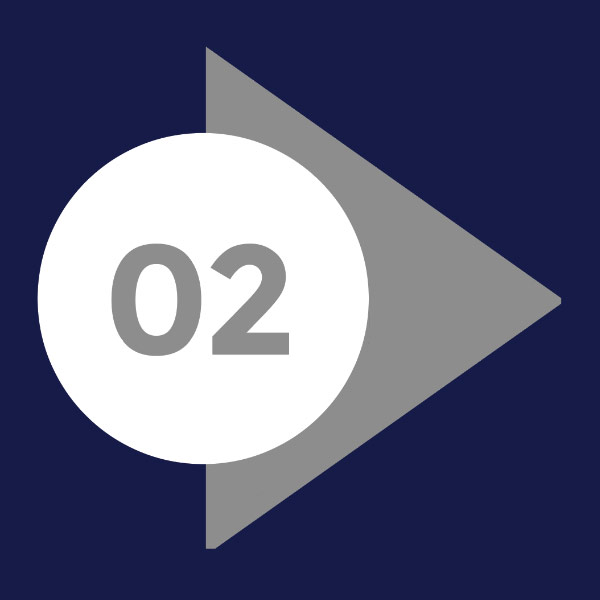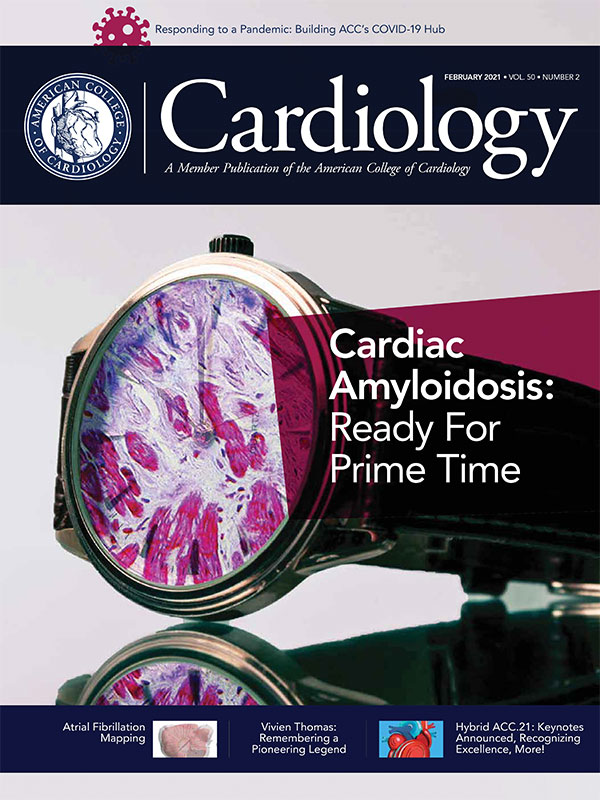Feature | Responding to a Pandemic: The Building of ACC's COVID-19 Hub

It was one year ago in March that the ACC released its first clinical bulletin addressing the cardiac implications of the novel SARS-CoV-2 (COVID-19) virus initially originating in Wuhan, China, and quickly making its way around the world.
The bulletin provided background on what was soon to be an official global pandemic, assessed information on the potential cardiac implications based on analog viral respiratory pandemics and offered early clinical guidance.
Of note, the bulletin cautioned clinicians to be prepared for guidance to shift as more information became available, especially given the speed at which the virus was spreading and the uncertain clinical profile.
Not long after the bulletin, the first iteration of the ACC's COVID-19 Hub was born – offering a single place for clinicians around the world to easily keep up with the quickly shifting guidance and fast-tracked research.
Overseen by the College's Science and Quality Committee, the Hub quickly became the go-to source for the latest clinical and operational guidance and clinical practice updates, as well as a place to share best practices and lessons learned from the front lines in countries like China, Brazil, Italy, Africa and the U.S.
New on the COVID-19 Hub
- ACC Health Policy Statement on Cardiovascular Disease Considerations for COVID-19 Vaccine Prioritization
- Anticoagulation to Prevent VTE in COVID-19: Interim Analysis
- COVID-19 Vaccines: Questions and Answers From CardioSmart
- RNA Vaccines for COVID-19: Five Things Every Cardiologist Should Know
- ACC NCD Academy COVID-19 Mini Course: Protecting Patients at Greatest Risk
At its peak in mid-March, the site was accessed by more than 300,000 people daily, with the greatest number of hits coming from individuals in the U.S, Canada, United Kingdom, India, Australia and Latin America.
More than 7,500 people downloaded the original clinical bulletin, making it the most downloaded document in ACC.org history, while subsequent new guidance addressing topics like influenza and COVID-19, RAAS inhibitors, troponin and BNP use, and hydroxychloroquine drew upwards of 100,000 visits to the Hub each time new information was posted.
Additionally, more than 56,000 clinicians from around the world tuned in for a live virtual webinar featuring firsthand insights from clinicians treating COVID-19 patients in China, while an early CardioSmart patient education piece on COVID-19 and heart disease also rocketed to the top of most-searched items with more than 90,000 views.
By late spring, the pace of content being posted to the Hub was nearly as fast as the spread of the virus itself and traffic averaged roughly 25,000 visits per day. The process established by the COVID-19 Hub leadership team to assess member needs and then work closely and quickly to engage with experts and develop and disseminate content was working.
Editor's Note: Click here for more facts on the COVID-19 Hub, by the numbers.
Leaders from ACC's JACC Journal, Member Sections, Board of Governors, ACC.org Editorial Board, CardioSmart, Assembly of International Governors, and MedAxiom were instrumental in these efforts.
However, the question became how to structure the Hub so that clinicians could easily find and access new content, as well as the more evergreen, but still critical operational guidance.
Not to mention, we also needed to take a step back and make sure: a) the types of content being provided were still relevant, and b) to identify new content types that might be needed.
In reviewing early data from the Hub it was clear that clinicians were coming to the site for three primary reasons: 1) personal education and knowledge; 2) education to improve or change care; and 3) understand regulatory and policy changes tied to the public health emergency.

At the same time, we were hearing from clinicians around the desire for clinical case vignettes, updated guidance on medical ethics and reopening of services, and curated summaries of the most important research.
Taking this information to heart, leaders and staff worked together to revamp the Hub and create focused sections allowing for the spotlighting of "Hot Topics" and clinical need-to-know information, as well as frontline perspectives and operational guidance.
A feed of relevant ACC.org-developed Journal Scans summarizing the most rigorously conducted research and expert consensus documents published in JACC and other scientific journals was also added, as were easy links to focused Practice Made Perfect and Eagle's Eye View podcasts.
Additionally, as the College ramped up its on-demand and virtual COVID-19 education, the Hub provided a way to showcase new Quick Tips videos and weekly Summer COVID-19 Education Series sessions featuring expert discussions on a wide array of topics ranging from returning to sports to health care disparities in COVID-19 care and outcomes.
Clearly labeled tiles also provided streamlined access to JACC Journals, MedAxiom and CardioSmart COVID-19 collection, as well as increasingly important clinician well-being resources aimed at supporting the mental health of frontline workers.
Save The Date: ACC.21 COVID-19 Intensive
Mark your calendars to attend the COVID-19: Uncovering the Silver Linings Intensive at ACC.21 on Saturday, May 15.
The two-part Intensive co-chaired by Doreen Defaria Yeh, MD, FACC, and David Rizik, MD, FACC, will host the annual Bishop Lecture Keynote and include a series of lectures and Q&A sessions addressing topics like vaccine development, leadership in the COVID era, advances in telehealth, and virtual conferencing and education.
In addition, attendees will have the chance to interact with panelists as part of a "Challenging Cases in COVID" session. Learn more at ACCScientificSession.org.
Fast forward to today and the COVID-19 Hub continues to garner at least 4,000 visits per day and serves as an important resource for assembling and broadly distributing information necessary to support clinicians who continue to struggle with increasing COVID-19 numbers, new variants of the virus, and the added challenge of vaccine rollouts.
The COVID-19 team continues to evolve the process of commissioning, organizing and distributing content in order to remain as nimble as possible, with some of the newest additions addressing cardiovascular considerations and the COVID-19 vaccine, as well as an interim analysis of the latest research surrounding anticoagulation to prevent VTE in COVID-19.
With leading health care experts and scientists predicting that COVID-19 will continue to ebb and flow over the next few years, the College is committed to helping clinicians navigate how best to manage and treat patients – the COVID-19 Hub provides the perfect vehicle for doing this.
Hub leaders are turning our attention to the growing body of peer-reviewed research surrounding COVID-19 and heart disease, including looking at long-term cardiovascular complications of the virus.
We are also focused on highlighting best practices and frontline experiences of members around the world as we continue to await longer-term research and more clearly defined evidence.
Looking ahead the lessons learned from the COVID-19 Hub will no doubt continue to serve us well as we work to address the varied needs of clinicians throughout the remainder of the pandemic.
However, more importantly they can be used as a playbook for the future. Whether it's responding to a global crisis or needing to communicate quickly and effectively about a novel treatment or procedure, the COVID-19 Hub is proof that we can quickly and nimbly come together as a College and as a community to advance solutions on a global scale.
COVID-19 Content

The Outbreak of COVID-19 in Italy

Pros and Cons of COVID-19: A Tale of Two Sides

Exercise and Athletics in the COVID-19 Pandemic Era

Estimated Incubation Period of COVID-19

COVID-19 and Hypertension: What We Know and Don't Know

Cardiac Tamponade Secondary to COVID-19

Inpatient Use of Inhaled Pulmonary Vasodilator Therapy in Patients Infected With COVID-19

Association of Treatment Dose Anticoagulation With In Hospital Survival Among Hospitalized Patients With COVID-19

COVID-19 and Thrombotic or Thromboembolic Disease: Implications for Prevention, Antithrombotic Therapy, and Follow-Up: JACC State-of-the-Art Review

Returning to Play After Coronavirus Infection: Pediatric Cardiologists
Clinical Topics: Anticoagulation Management, Cardiovascular Care Team, COVID-19 Hub, Heart Failure and Cardiomyopathies, Novel Agents, Statins
Keywords: ACC Publications, Cardiology Magazine, Pandemics, Hydroxychloroquine, COVID-19, Latin America, Influenza, Human, Coronavirus, severe acute respiratory syndrome coronavirus 2, Cardiovascular Diseases, Healthcare Disparities, Troponin, Public Health, Leadership, Leadership, Mental Health, Consensus, Brazil, Renin-Angiotensin System, Heart Diseases, Policy, Ethics, Medical, Attention, Anticoagulants
< Back to Listings


